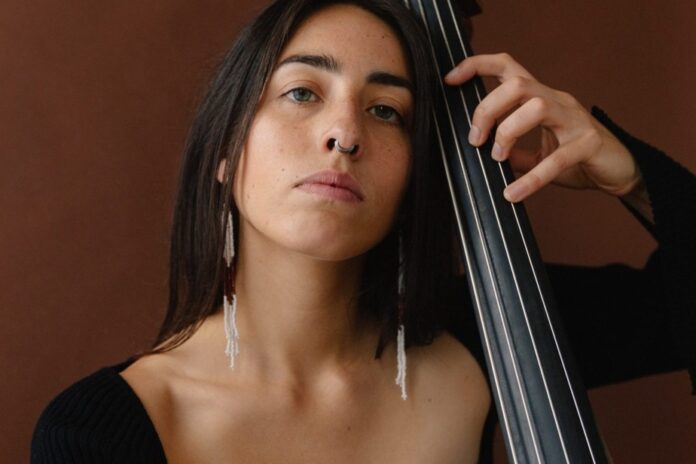A young woman enters a church. Gathers among religious objects, against a backdrop of sad brass bands.
She leaves the church, enters a traditional indigenous cabin, where wooden baby carriers hang. The music gradually turns into a chaotic free jazz, worthy of the Art Ensemble of Chicago. Unease sets in. And grows.
This scene, taken from the clip Wawasint8da, by Mali Obomsawin, leaves little room for ambiguity. And sums up quite well the words of this Abenaki double bass player, who is performing Friday with her sextet at the Montreal Jazz Festival.
Released in 2021, his first album, Sweet Tooth, is a real political rant. His blend of radical jazz and indigenous culture shines with its relevance and topicality. This perhaps explains, in part, the very favorable reception it received from international critics.
The musician tackles subjects as controversial as the ravages of religion on the First Nations (Wawasint8da), the Indian Act and its collateral damage (Blood quantum, Fractions) and ancestral heritage (Lineage), all interspersed with old Alan Lomax-style ethnographic records. The message is clear, even if words are scarce.
Does the musician consider herself an activist? She finds the term too “individualistic” and prefers to present herself as a “community organizer” when reached by telephone on the American east coast.
She also, and above all, sees herself as the repository of a culture that has repeatedly come close to extinction:
Mali Obomsawin could have chosen other musical genres to transmit this cultural baggage. She also began her professional career with the folk trio Lula Wiles (2014-2021).
But it turns out that jazz, and especially free jazz, was the perfect vehicle for sharing his political ideas: his music, sometimes confrontational, is a reflection of the indigenous malaise, in a colonialist system that persists until today. today, in the United States as well as in Canada.
“The tradition of improvised music has always been radical and always been resistance music. But resistance is a way of life for indigenous peoples. I guess that’s part of my music too,” she explains.
Born 27 years ago in Stratford, New Hampshire, Mali Obomsawin grew up in Maine, but maintains very close ties to the Odanak Reserve, located near Sorel, Quebec. “My father lived there, my older brother was born there. I spent several summers there. »
She speaks French, but prefers to conduct the interview in English, with which she feels more comfortable.
Interesting fact: His maternal grandfather was Jewish American writer Paul Goodman (1911-1972), well known for his social criticism and civil rights struggle. She has obviously inherited the militant fiber of the latter, but seems for the moment more turned towards her native roots, just as politicized.
On this side, the apple has not fallen very far from the apple tree: on his album, Mali in turn takes up the traditional Odana song, popularized 40 years ago by his cousin, the singer and filmmaker Alanis Obomsawin.
Offstage, Mali Obomsawin is just as committed. She is one of the founders of the Bomazeen Land Trust, an organization that advocates for the “ratriement” (matriarchal version of repatriation) of ancestral lands to the Abenakis south of the border, mainly in Maine. An essential step, in his eyes, for the “healing process” of the First Nations.
It is suggested to him that this healing has already begun. Whether the discovery of residential school cemeteries or the Indian Lives Matter movement, which caused a certain awareness in non-Indigenous society.
She would like to agree with us. But for her, we are still very far from the mark.
“These are improvements, yes. But I’m pretty sure they’re still going through pipelines. Despite the apologies and so-called acknowledgment, the destruction of the planet continues. It’s so hypocritical. Besides, the fact that the forests are burning and that there are these climate crises all over the place is an indication that the harm done to indigenous peoples is catching up with everyone else…”
A woman of convictions, Mali Obomsawin still has a lot to denounce. She will do it through jazz, an idiom that sticks to her skin. But this does not exclude other musical genres. “I don’t want to specialize in anything”, sums up this former student of the Berkley School of Music, whom some present as an heiress of double bassists Charles Mingus and Charlie Haden.
As proof: she has just recorded a rock album, the release of which is imminent. “It’s an easier way to express myself,” she concludes. I don’t have to be eloquent or intellectual when I do! »





